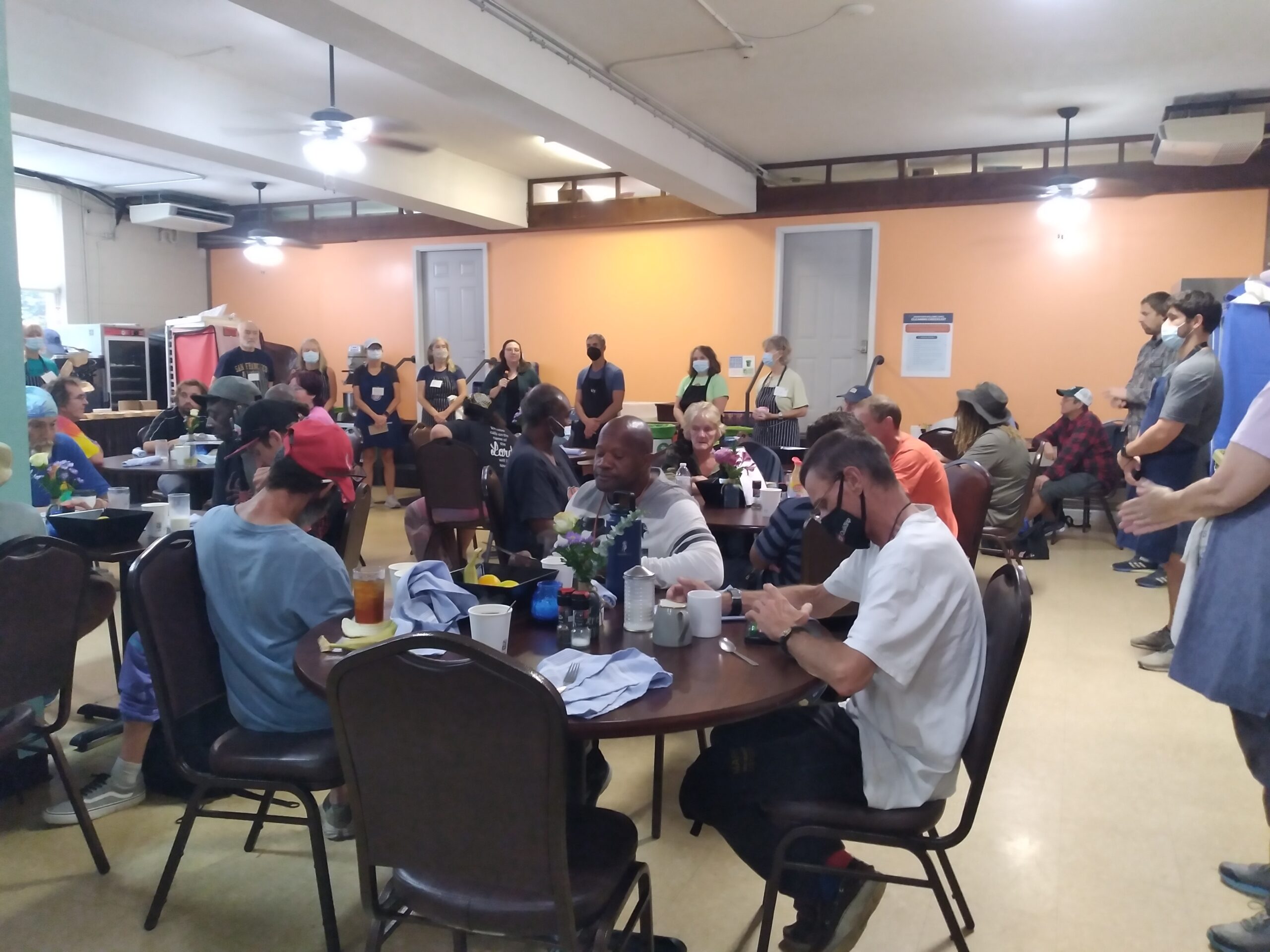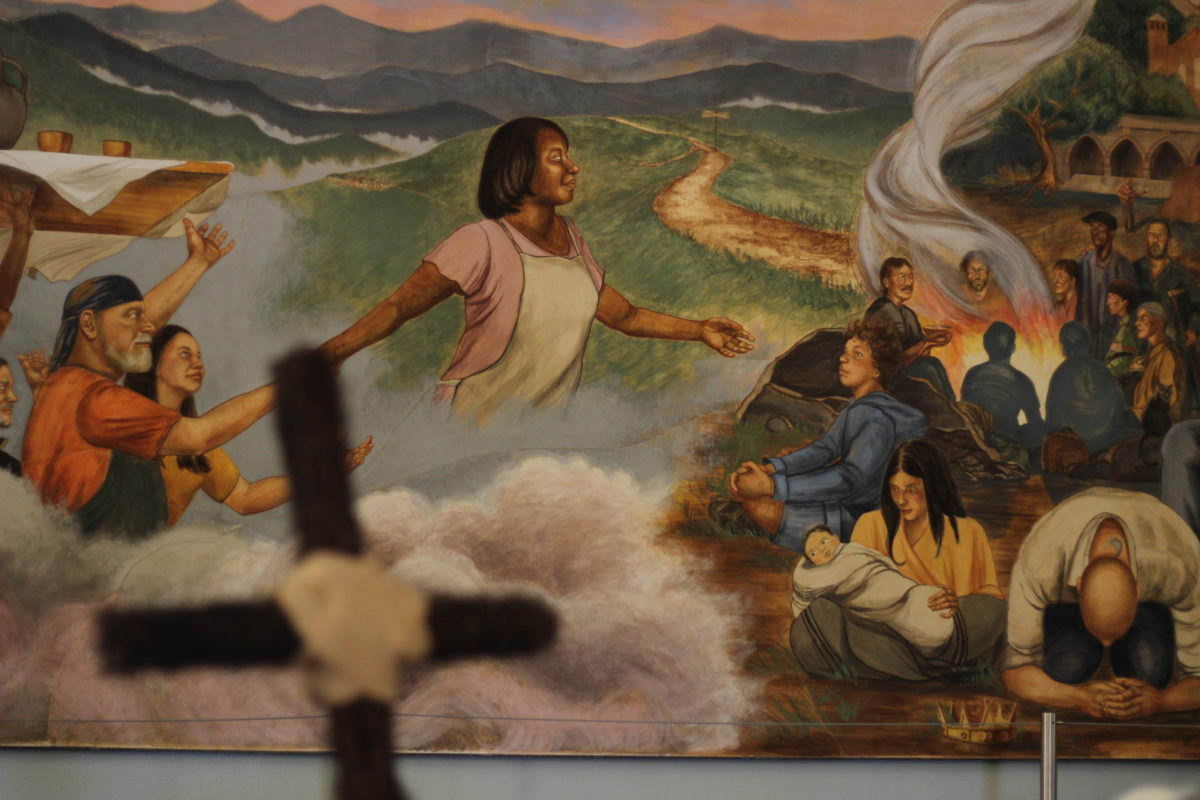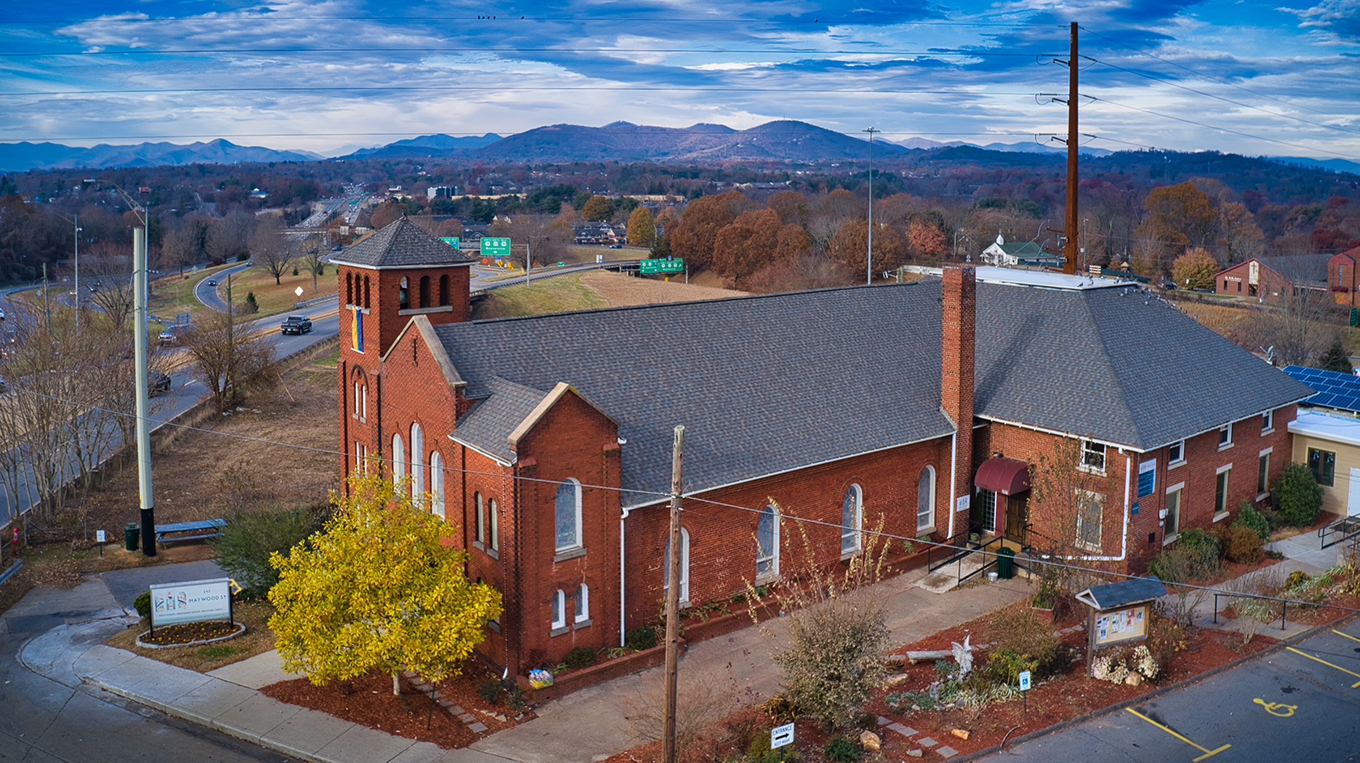
While touring the campus of Haywood Street Congregation, Annalee encountered a fresco spanning the front wall of the sanctuary. The beautiful work of art, completed in 2019, depicts faces of people who are part of the Haywood Street story.
For Annalee, it was a new way to see God’s presence in a familiar space. Annalee worshiped at Haywood Street on Wednesdays during her time as a local church pastor in Asheville. She had not visited in many years.
“It was a gift to have a few minutes to sit quietly and see the history of Haywood Street in the fresco,” Annalee said. “Some of the faces are people I had seen in person. For me, it was a reminder of what God can do when a community gathers.”

A ministry of radical inclusion
Haywood Street is a United Methodist church unlike any other. Operating as a mission congregation, the church brings together Asheville’s housed and unhoused to work and worship side-by-side, striving to be the one body of Christ together.
At the heart is a desire for relationships with people who are not welcomed anywhere else, such as those living with serious mental illness or struggling with addiction. More than serving a meal, Haywood Street invites people to become the hands and feet of Jesus – and, in turn, offer support, love and care to others.
The organization uses the word ‘companion’ instead of ‘volunteer’ to describe someone who helps, in part to move away from a stereotypical assumption that only privileged people are volunteers and people in poverty are simply there to receive something.
HSC’s tagline defines what a typical day looks like – “Holy Chaos, Abundant Grace, Welcome Table.”

Rebuilding relationships after pandemic
Annalee’s role as director of Reynolds Ministries and Programs created the opportunity to reconnect with Haywood Street.
The Reynolds Ministry Fund supports the congregation’s Downtown Welcome Table, a free community meal served on Wednesdays and Sundays. Sanctuary worship takes place following each meal, but worship also happens at the tables through the sacramental act of breaking bread and sharing the meal.
There is a great need for this kind of presence, particularly as Asheville struggles with a rise in homelessness and a dearth of options for people suffering from mental illness and addiction.
As with many churches, the pandemic delivered a major setback. From March 2020 to December 2021, Haywood Street had to close its building and distribute boxed meals from the parking lot. Companions drifted away. Relationships grew distant.
Since re-opening, organizers have recruited 125 new companions, some of whom are connecting with the church for the first time in their adult lives. The meal is intended to deliver three truths: You matter. You are a beloved child of God with gifts to share with the world. This is a place where you can claim that identity.
Blessings and testimonials are shared, and all are invited to rest in the knowledge that there is enough.
For Cross Connection, new name reflects big plans for growth
"The heart of Cross Connection is the same," the executive director said. "We’re still rooted in Christ—and growing into a fuller vision of the Church."
A pastor and his trumpet bring new energy to High Point church
Jazz is a regular part of worship at Memorial UMC in High Point, where Rev. Darryl Donnell brings a relatable style to preaching the Word.
An Asheville church seeks to ‘restore dignity’ in a time of fear
An Asheville congregation has befriended Spanish-speaking neighbors through a mobile food market, block parties and Know Your Rights events.